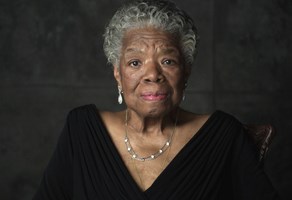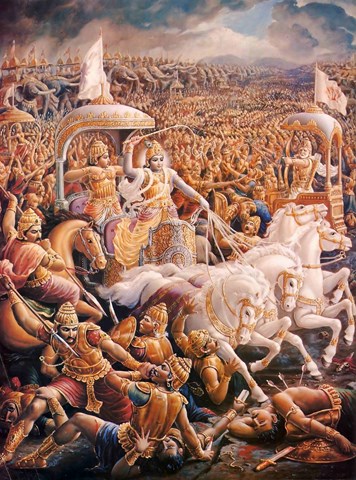 As we emerge from the fires of last week’s riots here in the U.S., Europe finds itself in the throes of unrest. With three months of moderately-strict lockdown due to Covid-19, many had reached the limits of their self-containment. George Floyd’s death was the spark that ignited an inferno which would consume American cities all across the country. Like a wildfire it spread, making its way across the Atlantic to Northwestern Europe. And in the ashes of its destruction, good people have been devastated – emotionally, financially, and legally. Some have lost their lives, leaving behind grieving loved ones, and forcing every citizen to reflect on the full implications of their beliefs, their expectations, and their future.
As we emerge from the fires of last week’s riots here in the U.S., Europe finds itself in the throes of unrest. With three months of moderately-strict lockdown due to Covid-19, many had reached the limits of their self-containment. George Floyd’s death was the spark that ignited an inferno which would consume American cities all across the country. Like a wildfire it spread, making its way across the Atlantic to Northwestern Europe. And in the ashes of its destruction, good people have been devastated – emotionally, financially, and legally. Some have lost their lives, leaving behind grieving loved ones, and forcing every citizen to reflect on the full implications of their beliefs, their expectations, and their future.
Not one person has been left unaffected by the combined Covid-19 pandemic and weeks of civil unrest. Businesses remained closed, despite quarantine restrictions being lifted in the strictest U.S. states. And 36 million Americans have been left jobless as a result of Covid-19. Analysts have been uncertain as to how the country will recover following the coronavirus lock downs, but many believe that unless something is done to help homeowners and renters, defaults will be abundant as people scramble to put their lives back in order.
I have no uncertainty that we have stepped into a new world in 2020. What that world will shape into is anybody’s guess, but to think it will ever return to life as we’ve known it would be foolish. Of course, some elements will remain the same – technology will reign supreme, social media will be the place to gather news, information, and entertainment, and political polarization will lead to even greater divides between people. But what, if anything, might we look forward to: what ups-and-downs can we expect along the path of reconstruction? The most honest answer is it will depend on our focus.
 Obviously, different people want different things. Every person can have a version of the future they envision to some degree. I will explain this idea more fully in a bit. But right now exists opportunity to shape your world in the way you want it. Yes you can shape society too, but do not fall victim to the belief that you can do it against the will of others. To create lasting social change, the hearts and mind of the people must be won over. Let me encourage you to think of any lasting social change, and investigate how it was accomplished. Yes violence has happened in moments of societal change, but the violence itself was not the catalyst to the lasting change, it was the inspired movement of hearts and minds which led to the transformation. Gandhi won the hearts and minds of the people. Martin Luther King, Jr. won the hearts and minds of people. Even the American Revolutionaries won the hearts and minds of the people. Without aligning these energy centers to your vision, you will be unlikely to cause lasting change. One need only consider the long chain of military occupiers in Vietnam and the drawn out fighting there to understand what I mean about failing to win hearts and minds. If your vision is big, however, and it includes the most people, you will have a greater probability of creating lasting change. I cannot stress this factor enough: hearts and minds.
Obviously, different people want different things. Every person can have a version of the future they envision to some degree. I will explain this idea more fully in a bit. But right now exists opportunity to shape your world in the way you want it. Yes you can shape society too, but do not fall victim to the belief that you can do it against the will of others. To create lasting social change, the hearts and mind of the people must be won over. Let me encourage you to think of any lasting social change, and investigate how it was accomplished. Yes violence has happened in moments of societal change, but the violence itself was not the catalyst to the lasting change, it was the inspired movement of hearts and minds which led to the transformation. Gandhi won the hearts and minds of the people. Martin Luther King, Jr. won the hearts and minds of people. Even the American Revolutionaries won the hearts and minds of the people. Without aligning these energy centers to your vision, you will be unlikely to cause lasting change. One need only consider the long chain of military occupiers in Vietnam and the drawn out fighting there to understand what I mean about failing to win hearts and minds. If your vision is big, however, and it includes the most people, you will have a greater probability of creating lasting change. I cannot stress this factor enough: hearts and minds.
 When forging a path in this new world, it would be wise to focus on your highest values. Those things that act as drivers for your decisions – things you are inspired by daily – are what you should focus on and centralize in your vision. For some people it is family, for others it is service, and for even others it is the beauty of the world (artists, poets, musicians, mathematicians, etc.). There is certainly no right or wrong in this regard, other than the importance you give it to your mission. Simply put: A mission is a plan with a purpose. The purpose is the why you do what you do, while the mission is the vision.
When forging a path in this new world, it would be wise to focus on your highest values. Those things that act as drivers for your decisions – things you are inspired by daily – are what you should focus on and centralize in your vision. For some people it is family, for others it is service, and for even others it is the beauty of the world (artists, poets, musicians, mathematicians, etc.). There is certainly no right or wrong in this regard, other than the importance you give it to your mission. Simply put: A mission is a plan with a purpose. The purpose is the why you do what you do, while the mission is the vision.
A powerful vision is one that has a strong purpose behind it, allows the most people fulfillment of their values, and has a coherent, specific plan to make it happen. If one’s purpose is linked strongly to one’s values, one will be more likely to see it through. Many people inject other’s values into their endeavors, but they do not have the drive to ultimately carry things out. We are driven by our true values, and no matter how good another’s values sound, if you do not truly share them, you will peter out and lose drive. A vision which allows for the greatest numbers of people to fulfill their own values will be the most powerful and longest lasting. Civil rights is one of those visions: by ensuring that all people have a right to pursue and fulfill their values, in health, wealth and freedom, failure becomes impossible. Obstacles will arise, as in any endeavor, but ultimately, people will be inspired and driven to support freedom and justice for all. Finally, a vision is only as good as its implementation. You can envision all day long, but if you do nothing to make it happen, it will remain a daydream. Constructing a specific plan which can be communicated coherently, so that others may become inspired by your vision, is the surest way to accomplishing your goals. You will forge your way in the new world most successfully by following the principles above. Purpose, vision, and fulfillment for the most people are the ingredients for a lasting legacy.
 Finally, and most importantly, is to strive for balance – in your personal endeavors, as well as for the collective or greater good. Understand that regardless of your vision, you will face obstacles in that endeavor. Obstacles are not vision-killers; they are feedback mechanisms that are in place to guide you. Your vision will be shaped and refined by the obstacles you face…and overcome. To do so you may need to alter your plan a bit. You may need to learn more, or you may need to change beliefs or perspectives. I love to read biographies on the greats of humanity to get a sense of their obstacles, their solutions, and their evolution. You will have yours in your unique way. When attempting to elicit change that is resisted by others, try to find a middle ground. Believe it or not, it is possible to exist in coinciding realities with others – that is, many people can live in worlds of their making together, even when it seems that their worlds are diametrically opposed. Find the common ground. How do you get what you love while others get what they love? That may be the very challenge for you to figure out, but what a powerful vision that is. “All you need is love” is not some hokey song lyric, but a profound truth of all human beings: How do I get what I love while you get what you love…? Living in the extreme polarities of any human issue is volatile – it brings the most stress, the least cooperation, and the baddest blood to the table. Finding the center point and striving for a win-win is the greatest achievement one can have, with the highest possibility of longevity. Game theory, a mathematical study, shows unequivocally that people do better when working together.
Finally, and most importantly, is to strive for balance – in your personal endeavors, as well as for the collective or greater good. Understand that regardless of your vision, you will face obstacles in that endeavor. Obstacles are not vision-killers; they are feedback mechanisms that are in place to guide you. Your vision will be shaped and refined by the obstacles you face…and overcome. To do so you may need to alter your plan a bit. You may need to learn more, or you may need to change beliefs or perspectives. I love to read biographies on the greats of humanity to get a sense of their obstacles, their solutions, and their evolution. You will have yours in your unique way. When attempting to elicit change that is resisted by others, try to find a middle ground. Believe it or not, it is possible to exist in coinciding realities with others – that is, many people can live in worlds of their making together, even when it seems that their worlds are diametrically opposed. Find the common ground. How do you get what you love while others get what they love? That may be the very challenge for you to figure out, but what a powerful vision that is. “All you need is love” is not some hokey song lyric, but a profound truth of all human beings: How do I get what I love while you get what you love…? Living in the extreme polarities of any human issue is volatile – it brings the most stress, the least cooperation, and the baddest blood to the table. Finding the center point and striving for a win-win is the greatest achievement one can have, with the highest possibility of longevity. Game theory, a mathematical study, shows unequivocally that people do better when working together.
The chaos of 2020 has been disruptive for most people to say the least. For many it appears, for now, devastating. But in chaos there is always a hidden order, one that allows for a reconfiguration of your life at the micro-level, but the entire world in the macro. There appears to be great opportunity at this time for enormous change, so take the time and invest the energy to create the world that you want to live in. It will not come easy – so do not take this as the walk-away message. Whatever you would love to see and experience in this new world will take great effort, but it will be worth it. If you can observe the principles I have outlined here, you stand the greatest chance of lasting success. People will follow your inspired message if they can see what is in it for them. What this means for most people is how it will allow them to fulfill their own mission, according to their life’s purpose, which, of course, is intertwined with their highest values. People are only fulfilled – that is, filled-up full – when they are allowed to pursue their dreams, in their way, at their pace. If your vision for the new world allows others to do this, it will be embraced by all.

 “Our findings point to the fact that finding a direction for life, and setting overarching goals for what you want to achieve can help you actually live longer, regardless of when you find your purpose,” says Hill. “So the earlier someone comes to a direction for life, the earlier these protective effects may be able to occur.”
“Our findings point to the fact that finding a direction for life, and setting overarching goals for what you want to achieve can help you actually live longer, regardless of when you find your purpose,” says Hill. “So the earlier someone comes to a direction for life, the earlier these protective effects may be able to occur.”

 This piece stirred some thought in my readers, and an excellent question came as a result: What if the flow stops flowing? What if where there was once a stream stagnancy now sits? My initial answer was that many factors could be responsible for that type of scenario, as well there being multiple solutions, each depending on the cause of the drying up. Over the next few posts I will address some of the reasons why someone’s flow might stop flowing.
This piece stirred some thought in my readers, and an excellent question came as a result: What if the flow stops flowing? What if where there was once a stream stagnancy now sits? My initial answer was that many factors could be responsible for that type of scenario, as well there being multiple solutions, each depending on the cause of the drying up. Over the next few posts I will address some of the reasons why someone’s flow might stop flowing.


















